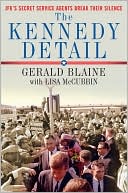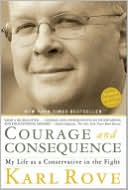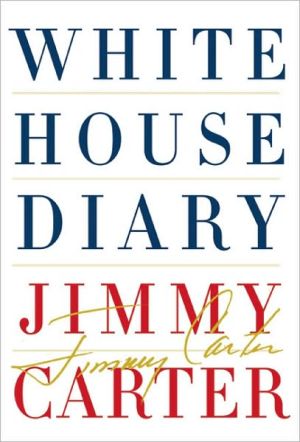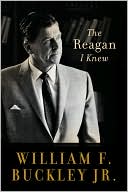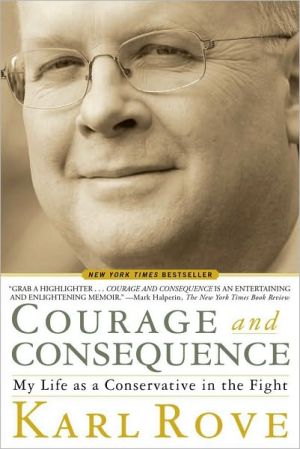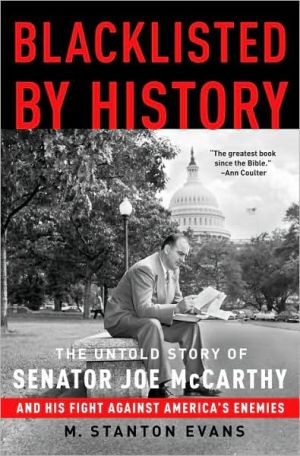Peace Kills: America's Fun New Imperialism
In his classic Parliament of Whores, P. J. O'Rourke listened to the dirty joke that is the U.S. government. In his best-seller Eat the Rich he subjected himself to the shaggy dog story of economics. Now O'Rourke brings his critical facilities to bear on the ultimate stand-up act -- American foreign policy. Imperialism has never been so funny. "Americans hate foreign policy," says O'Rourke. "Americans hate foreign policy because Americans hate foreigners. Americans hate foreigners because...
Search in google:
With his latest national best seller, Peace Kills, P.J. O'Rourke casts his ever-shrewd and mordant eye on America's latest adventures in warfare. Imperialism has never been more fun.To unravel the mysteries of war, O'Rourke first visits Kosovo: "Wherever there's injustice, oppression, and suffering, America will show up six months later and bomb the country next to where it's happening." He travels to Israel at the outbreak of the intifada. He flies to Egypt in the wake of the 9/11 terrorists' attacks and contemplates bygone lunacies. "Why are the people in the Middle East so crazy? Here, at the pyramids, was an answer from the earliest days of civilization: People have always been crazy." He covers the demonstrations and the denunciations of war. "A moral compass needle needs a butt end. Wherever direction France is pointing-toward collaboration with Nazis, accommodation with communists, existentialism, Jerry Lewis, or a UN resolution veto-we can go the other way with a quiet conscience." Finally he arrives in Baghdad with the U.S. Army and, standing in one of Saddam's palaces, decides, "If a reason for invading Iraq was needed, felony interior decorating would have sufficed." The New York Times - Paula Friedman Readers acquainted with P. J. O'Rourke's knock-'em-dead writings on American politics will know just what to expect -- at least in terms of perspective -- from Peace Kills. O'Rourke never fails to find the absurd: ''Wherever there's suffering, injustice and oppression, America will show up six months late and bomb the country next to where it's happening.'' He even goes so far as to say, ''Americans hate foreign policy because Americans hate foreigners.''
Peace Kills\ America's Fun New Imperialism \ \ By P.J. O'Rourke \ Grove Atlantic, Inc.\ Copyright © 2004 P.J. O'Rourke\ All right reserved.\ ISBN: 0-87113-919-7 \ \ \ Chapter One\ Why Americans Hate\ Foreign Policy\ I was in Berlin in November 1989, the weekend the wall opened. The Cold War was over. The ICBMs weren't going to fly. The world wouldn't melt in a fusion fireball or freeze in a nuclear winter. Everybody was happy and relieved. And me, too, although I'm not one of those children of the 1950s who was traumatized by the A-bomb. Getting under a school desk during duck-and-cover was more interesting and less scary than the part of the multiplication table that came after "times seven." Still, the notion that, at any time, the U.S.S.R. and the U.S.A. might blow up the whole world-my neighborhood included-was in the back of my mind. A little mushroom-shaped cloud marred the sunny horizon of my future as an internationally renowned high school JV football player. If On the Beach was for real, I'd never get tall enough to date Ava Gardner. What's more, whenever I was apprehended in youthful hijinks, Mutually Assured Destruction failed to happen before Dad got home from work. Then, in the fall of 1962, when I was fifteen, Armageddon really did seem to arrive. I made an earnest plea to my blond, freckled biology-class lab partner (for whom, worshipfully, I had undertaken all frog dissection duties). "The Cuban missile crisis," I said, "means we probably won't live long. Let's do it before we die." She demurred. All in all the Cold War was a bad thing.\ Twenty-seven years later, wandering through previously sinister Checkpoint Charlie with beer in hand, I felt like a weight had been lifted from my shoulders. I remember thinking just those words: "I feel like a weight has been lifted ..." A wiser person would have been thinking, "I feel like I took a big dump."\ Nastiness was already reaccumulating. I reported on some of it in ex-Soviet Georgia, ex-Yugoslav Yugoslavia, the West Bank, Somalia, and Iraq-ravaged Kuwait. The relatively simple, if costive, process of digesting the Communist bloc was complete. America needed to reconstitute its foreign policy with-so to speak-a proper balance of fruit and fiber. The serious people who ponder these things seriously said the new American foreign policy must include:\ Nation-building;\ A different approach to national security; Universal tenets of democracy.\ This didn't occur to me. Frankly, nothing concerning foreign policy had ever occurred to me. I'd been writing about foreign countries and foreign affairs and foreigners for years. But you can own dogs all your life and not have "dog policy."\ You have rules, yes-Get off the couch!-and training, sure. We want the dumb creatures to be well behaved and friendly. So we feed foreigners, take care of them, give them treats, and, when absolutely necessary, whack them with a rolledup newspaper. That was as far as my foreign policy thinking went until the middle 1990s, when I realized America's foreign policy thinking hadn't gone that far.\ In the fall of 1996, I traveled to Bosnia to visit a friend whom I'll call Major Tom. Major Tom was in Banja Luka serving with the NATO-led international peacekeeping force, IFOR. From 1992 to 1995 Bosnian Serbs had fought Bosnian Croats and Bosnian Muslims in an attempt to split Bosnia into two hostile territories. In 1995 the U.S.-brokered Dayton Agreement ended the war by splitting Bosnia into two hostile territories. The Federation of Bosnia and Herzegovina was run by Croats and Muslims. The Republika Srpska was run by Serbs. IFOR's job was to "implement and monitor the Dayton Agreement." Major Tom's job was to sit in an office where Croat and Muslim residents of Republika Srpska went to report Dayton Agreement violations.\ "They come to me," said Major Tom, "and they say, 'The Serbs stole my car.' And I say, 'I'm writing that in my report.' They say, 'The Serbs burned my house.' And I say, 'I'm writing that in my report.' They say, 'The Serbs raped my daughter.' And I say, 'I'm writing that in my report.'"\ "Then what happens?" I said.\ "I put my report in a file cabinet."\ Major Tom had fought in the Gulf War. He'd been deployed to Haiti during the American reinstatement of President Aristide (which precede the recent American unreinstatement). He was on his second tour of duty in Bosnia and would go on to fight in the Iraq war. That night we got drunk.\ "Please, no nation building," said Major Tom. "We're the Army. We kill people and break things. They didn't teach nation building in infantry school."\ Or in journalism school, either. The night before I left to cover the Iraq war I got drunk with another friend, who works in TV news. We were talking about how-as an approach to national security-invading Iraq was ... different. I'd moved my family from Washington to New Hampshire. My friend was considering getting his family out of New York. "Don't you hope," my friend said, "that all this has been thought through by someone who is smarter than we are?" It is, however, a universal tenet of democracy that no one is.\ Americans hate foreign policy. Americans hate foreign policy because Americans hate foreigners. Americans hate foreigners because Americans are foreigners. We all come from foreign lands, even if we came ten thousand years ago on a land bridge across the Bering Strait. We didn't want anything to do with those Ice Age Siberians, them with the itchy cave bear-pelt underwear and mammoth meat on their breath. We were off to the Pacific Northwest-great salmon fishing, blowout potluck dinners, a whole new life.\ America is not "globally conscious" or "multicultural." Americans didn't come to America to be Limey Poofters, Frog Eaters, Bucket Heads, Micks, Spicks, Sheenies, or Wogs. If we'd wanted foreign entanglements, we would have stayed home. Or-in the case of those of us who were shipped to America against our will, as slaves, exiles, or transported prisoners-we would have gone back. Events in Liberia and the type of American who lives in Paris tell us what to think of that.\ Being foreigners ourselves, we Americans know what foreigners are up to with their foreign policy-their venomous convents, lying alliances, greedy agreements, and trick-or-treaties. America is not a wily, sneaky nation. We don't think that way. We don't think much at all, thank God. Start thinking and pretty soon you get ideas, and then you get idealism, and the next thing you know you've got ideology, with millions dead in concentration camps and gulags. A fundamental American question is "What's the big idea?"\ Americans would like to ignore foreign policy. Our previous attempts at isolationism were successful. Unfortunately, they were successful for Hitler's Germany and Tojo's Japan. Evil is an outreach program. A solitary bad person sitting alone, harboring genocidal thoughts, and wishing he ruled the world is not a problem unless he lives next to us in the trailer park. In the big geopolitical trailer park that is the world today, he does.\ America has to act. But, when America acts, other nations accuse us of being "hegemonistic," of engaging in "unilateralism," of behaving as if we're the only nation on earth that counts.\ We are. Russia used to be a superpower but resigned "to spend more time with the family." China is supposed to be mighty, but the Chinese leadership quakes when a couple of hundred Falun Gong members do tai chi for Jesus. The European Union looks impressive on paper, with a greater population and a larger economy than America's. But the military spending of Britain, France, Germany, and Italy combined does not equal one third of the U.S. defense budget. The United States spends more on defense than the aforementioned countries-plus Russia plus China plus the next six top defense-spending nations. Any multilateral military or diplomatic effort that includes the United States is a crew team with Arnold Schwarzenegger as coxswain and Nadia Comaneci on the oars. When other countries demand a role in the exercise of global power, America can ask another fundamental American question: "You and what army?"\ Americans find foreign policy confusing. We are perplexed by the subtle tactics and complex strategies of the Great Game. America's great game is pulling the levers on the slot machines in Las Vegas. We can't figure out what the goal of American foreign policy is supposed to be.\ The goal of American tax policy is avoiding taxes. The goal of American health policy is HMO profits. The goal of American environmental policy is to clean up the environment, clearing away scruffy caribou and seals so that America's drillers for Arctic oil don't get trampled or slapped with a flipper. But the goal of American foreign policy is to foster international cooperation, protect Americans at home and abroad, promote world peace, eliminate human rights abuses, improve U.S. business and trade opportunities, and stop global warming.\ We were going to stop global warming by signing the Kyoto protocol on greenhouse gas emissions. Then we realized the Kyoto protocol was ridiculous and unenforceable and that no one who signed it was even trying to meet the emissions requirements except for some countries from the former Soviet Union. They accidentally quit emitting greenhouse gases because their economies collapsed. However, if we withdraw from diplomatic agreements because they're ridiculous, we'll have to withdraw from every diplomatic agreement, because they're all ridiculous. This will not foster international cooperation. But if we do foster international cooperation, we won't be able to protect Americans at home and abroad, because there has been a lot of international cooperation in killing Americans. Attacking internationals won't promote world peace, which we can't have anyway if we're going to eliminate human rights abuses, because there's no peaceful way to get rid of the governments that abuse the rights of people-people who are chained to American gym-shoe-making machinery, dying of gym shoe lung, and getting paid in shoelaces, thereby improving U.S. business and trade opportunities, which result in economic expansion that causes global warming to get worse.\ As the nineteenth-century American naval hero Stephen Decatur said in his famous toast: "Our Country! In her intercourse with foreign nations may she always be in the right; but our country, right or wrong, should carry condoms in her purse."\ One problem with changing America's foreign policy is that we keep doing it. After the Cold War, President George H. W. Bush managed to engage America-in spite of itself-in the multilateralism of the Gulf War. This left Saddam Hussein exactly where we found him twelve years later. Like other American achievements in multilateralism, it wasn't something we'd care to achieve again. The east side of midtown Manhattan, where a decent slum once stood, is blighted by the United Nations headquarters. And, in the mountains of the Balkan peninsula, the ghost of Woodrow Wilson wanders Marley-like, dragging his chains and regretting the deeds of his life.\ President Bill Clinton dreamed of letting the lion lie down with the lamb chop. Clinton kept International Monetary Fund cash flowing into the ever-criminalizing Russian economy. He ignored Kremlin misbehavior from Boris Yeltsin's shelling of elected representatives in the Duma to Vladimir Putin's airlifting uninvited Russian troops into Kosovo. Clinton compared the Chechnya fighting to the American Civil War (murdered Chechens being on the South Carolina statehouse Confederate flag-flying side). Clinton called China America's "strategic partner" and paid a nine-day visit to that country, not bothering himself with courtesy calls on America's actual strategic partners, Japan and South Korea. Clinton announced, "We don't support independence for Taiwan," and said of Jiang Zemin, instigator of the assault on democracy protesters in Tiananmen Square, "He has vision."\ Anything for peace, that was Clinton's policy. Clinton had special peace-mongering envoys in Cyprus, Congo, the Middle East, the Balkans, and flying off to attend secret talks with Marxist guerrillas in Colombia. Clinton made frantic attempts to close an Israeli-Palestinian peace deal. What if the Jews control the Temple Mount and the Arabs control the movie industry? On his last day in office, Clinton was still phoning Sinn Fein leader Gerry Adams. "Love your work, Gerry. Do you ever actually kill people? Or do you just do the spin?"\ Clinton was everybody's best friend. Except when he wasn't. He conducted undeclared air wars against Serbia and Iraq and launched missiles at Sudan and Afghanistan. Clinton used the military more often than any previous peacetime American president. He sent armed forces into areas of conflict on an average of once every nine weeks.\ Then we elected an administration with adults in it-Colin Powell, Dick Cheney, and Donald Rumsfeld. Gone was the harum-scarum Clinton policy-making apparatus with its frenzied bakeheads piling up midnight pizza boxes in the Old Executive Office Building. They disappeared, along with the clinically insane confidants-vein-popping James Carville, toe-sucking Dick Morris-and the loose haircuts in the West Wing and the furious harridan on the White House third floor.\ President George W. Bush's foreign policy was characterized, in early 2001, as "disciplined and consistent" (-Condoleezza Rice): "blunt" (-The Washington Post), and "in-your-face" (-the Carnegie Endowment for International Peace). Bush began his term with the expulsion of one fourth of the Russian diplomatic corps on grounds of espionage. He snubbed Vladimir Putin by delaying a first summit meeting until June 2001, and then holding it in fashionable Slovenia.\ On April 1, 2001, a Chinese fighter jet, harassing a U.S. reconnaissance plane in international airspace, collided with the American aircraft, which was forced to land in Chinese territory. Bush did not regard this as an April Fools' prank. By the end of the month he had gone on Good Morning America and said that if China attacked Taiwan, the United States had an obligation to defend it.\ "With the full force of American military?" asked Charlie Gibson.\ "Whatever it took," said Bush.\ The president also brandished American missile defenses at Russia and China. The Russians and Chinese were wroth. The missile shield might or might not stop missiles, but, even unbuilt, it was an effective tool for gathering intelligence on Russian and Chinese foreign policy intentions. We knew how things stood when the town drunk and the town bully strongly suggested that we shouldn't get a new home security system.\ In the Middle East, Bush made an attempt to let the Israelis and the Palestinians go at it until David ran out of pebbles and Goliath had been hit on the head so many times that he was voting for Likud. In Northern Ireland, Bush also tried minding his own business.\ \ Continues...\ \ \ \ Excerpted from Peace Kills by P.J. O'Rourke Copyright © 2004 by P.J. O'Rourke. Excerpted by permission.\ All rights reserved. No part of this excerpt may be reproduced or reprinted without permission in writing from the publisher.\ Excerpts are provided by Dial-A-Book Inc. solely for the personal use of visitors to this web site. \ \
1Why Americans hate foreign policy12Kosovo, November 1999173Israel, April 20013149/11 diary575Egypt, December 2001816Nobel sentiments1157Washington, D.C., demonstrations, April 20021238Thoughts on the eve of war1399Kuwait and Iraq : March and April 200314310Postscript : Iwo Jima and the end of modern warfare, July 2003187
\ Paula FriedmanReaders acquainted with P. J. O'Rourke's knock-'em-dead writings on American politics will know just what to expect -- at least in terms of perspective -- from Peace Kills. O'Rourke never fails to find the absurd: ''Wherever there's suffering, injustice and oppression, America will show up six months late and bomb the country next to where it's happening.'' He even goes so far as to say, ''Americans hate foreign policy because Americans hate foreigners.'' \ — The New York Times\ \ \ \ \ Publishers WeeklyO'Rourke has made a career out of telling people off. As a foreign correspondent for the Atlantic Monthly and Rolling Stone, he has demonstrated a flair for sarcasm and an aptitude for making people laugh. In his 11th book, however, this provocateur par excellence presents a more sober and, alas, less funny, take than usual, this time in essays on American foreign policy, including visits to several important countries on the international scene. Starting with Kosovo, he comments on the Serbian-Albanian conflict, then makes his way to Israel, Egypt, Kuwait and Iraq. Other entries look at the effects of September 11 on the U.S. home front, which includes poking fun at airport search techniques and a clever deconstruction of a 2001 statement on peace and social justice signed by 103 Nobelists. O'Rourke's book does many of the things a conservative bestseller is supposed to do: it's irreverent, in-your-face and often offensive (Hillary Clinton: "the furious harridan on the White House third floor"). Yet O'Rourke, the funny man of foreign politics, seems less interested in humor here than in slightly skewed reporting. His articles on Israel and Egypt, for example, are basically descriptive, a diary account of where he went, what he saw, the hotels he stayed in, the food he ate, interrupted every so often by O'Rourke's trademark non sequitur humor. The author's fans probably won't mind the slight shift in direction, though they will wish for more laughs; O'Rourke is one of the most popular conservative authors around and this book, like his others, should find a happy nest on national bestseller lists. Agent, Robert Dattila. (June) Copyright 2004 Reed Business Information.\ \ \ Library JournalBarbs of a conservative sort, with subjects ranging from Kosovo to airport security. Copyright 2004 Reed Business Information.\ \ \ \ \ Kirkus ReviewsThe senior satirist of the right returns to dissect foreign policy and-Lord help us-he seems to have moments of distinct sanity. Never mind the purposefully Orwellian title. Because Americans are foreigners, Americans hate foreign policy, says the libertarian comedian. He doesn't seem too fond of foreign policy either. With less of his accustomed spleen, his points seem sometimes less barbed than might be expected. The pundit offers no puns; he is less sour and presents fewer ad hominem attacks than in his earlier texts (The CEO of the Sofa, 2001, etc.). He's not nearly as fractious as the Sunday morning talking heads. With less embroidery, our comedian seems to be maturing, citing eminent greybeards like Fouad Ajami and Bernard Lewis anent the inscrutable Middle East. O'Rourke lands in Israel in time for Passover and in Egypt in time for Ramadan, 2001, and has a few cogent comments about what he sees, admittedly as a tourist. In Kuwait at the start of the most recent hostilities, he becomes a "unilateral" war correspondent amid Humvees, Bradley fighting vehicles, and Patriot missile launchers, embedded in a hotel full of TV producers. Checking out ravaged Iraq, his backgrounder journalism is first-rate and, reviewing a Washington Mall political demonstration, his color reportage is smartly selective and funny. We will never catch O'Rourke, ever the professional reporter, wearing a kaffiyeh to make an obscure point. Effectively ruining his chances for a Nobel, he bravely sasses the prize committee; with heavy sarcasm he deconstructs a surely well-meant, albeit fatuous, commemorative statement by a committee of laureates. Included is an obligatory September 11th essay and effective musingson warfare from the sands of Iwo Jima. From far away and within the Beltway, thoughtful pronouncements from one possible candidate for the office of Secretary of Moral Guidance and Public Relations (soon to be established). Agent: Robert Dattila/Phoenix Literary Agency\ \

